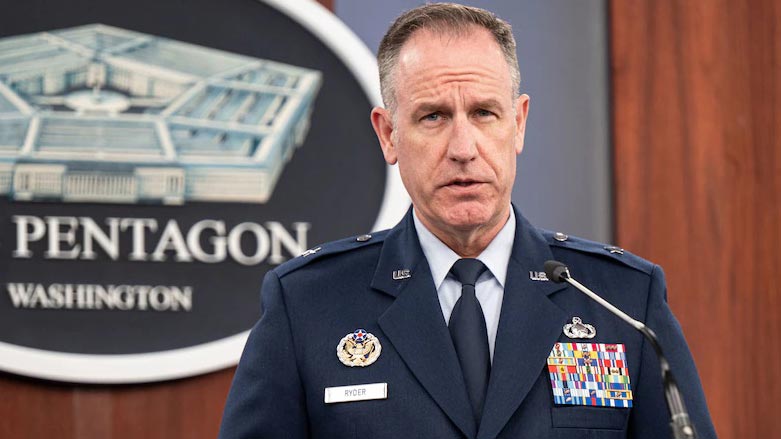US cuts anti-ISIS patrols in northeast Syria; US Secretary of Defense to speak with Turkish Defense Minister

WASHINGTON DC, United States (Kurdistan24) The US has reduced its patrols in northeast Syria, because of Turkish threats to its principal local partner, the Kurdish-led Syrian Democratic Forces (SDF), Pentagon Press Secretary Brig. Gen. Pat Ryder told journalists on Tuesday.
Ryder also expressed the Pentagon’s concerns about “the escalating actions in northern Syria, Iraq, and Turkey,” as he renewed his earlier call for “restraint.”
Ryder also announced that US Secretary of Defense Lloyd Austin would speak to this Turkish counterpart “in the very near future.”
With Increased Turkish Attacks, Threats to SDF, anti-ISIS Patrols Reduced
Following the Nov. 13 bombing in Istanbul that killed six people, Turkish authorities, from President Recep Tayyip Erdogan on down, blamed the SDF.
However, they have produced little evidence, and the SDF Commander, Mazloum Abdi, has denied any involvement. Rather, he has said that ISIS was responsible for the terrorist attack in Istanbul.
Nonetheless, a week later, on Nov. 20, Turkey began bombing and shelling SDF-controlled territory, while Erdogan began repeatedly to threaten that a ground offensive would follow.
As a result of the Turkish threats—and actual attacks—Abdi told reporters six days later that operations against ISIS “have stopped.”
Read More: Syrian Kurds say they have stopped operations against IS
Ryder’s statement to journalists on Tuesday, thus confirmed, to a significant extent, Abdi’s earlier remarks.
“We have reduced the number of partnered patrols,” Ryder said. And he repeated a statement from the week before, “We do remain deeply concerned about the escalating actions in northern Syria, Iraq, and Turkey,” and “we certainly urge restraint.”
Ryder stressed that “a ground invasion would severely jeopardize the hard-fought gains that the world has achieved against ISIS and would destabilize the region.”
Yet Ryder seemed unwilling even to question, at least in public, the Turkish claim that the SDF was behind the Istanbul bombing. Rather, as he stated, “We do recognize Turkey’s legitimate security concerns regarding terrorist acts that have occurred within its own borders,” even as he also affirmed that the US is continuing its support for the SDF.
Ryder also explained that the US had not withdrawn any of the 900 troops that it has stationed in northeast Syria. “We’ve not redeployed any of our folks,” he said, and “we continue to stay very focused on countering the ISIS threat.”
But Ryder also appeared to confirm, at least indirectly, that press reports about Turkish preparations for a ground offensive were accurate. When questioned about them, he declined to provide any US intelligence that would confirm or call into question their accuracy.
Rather, he referred to “the open press reporting” about “potential threats of a ground invasion,” as he, again, called for restraint.
“I don’t want to get into any specific intelligence,” he said. “You’ve seen the open press reporting, like I have, in terms of potential threats of a ground invasion”and “again we would call on all sides” to “stay restrained” and “stay focused on the defeat ISIS mission.”
If the press reports about Turkish preparation for a ground offensive were inaccurate, presumably Ryder would have indicated that. His response, however, appeared to confirm their general accuracy.
Al-Jazeera reported on Friday that Russia was mediating between Turkey and the Kurdish People’s Protection Units (YPG), which form the SDF’s fighting core and its leadership, to negotiate a YPG withdrawal from territory that it controls in order to avoid a Turkish ground attack. For that reason, it said, Ankara had postponed its offensive.
According to al-Jazeera, which cited anonymous Turkish sources, Ankara has demanded a YPG withdrawal from Manbij, Kobani, and Tal Rifaat. However, the YPG has rejected the Turkish demand, al-Jazeera said.
